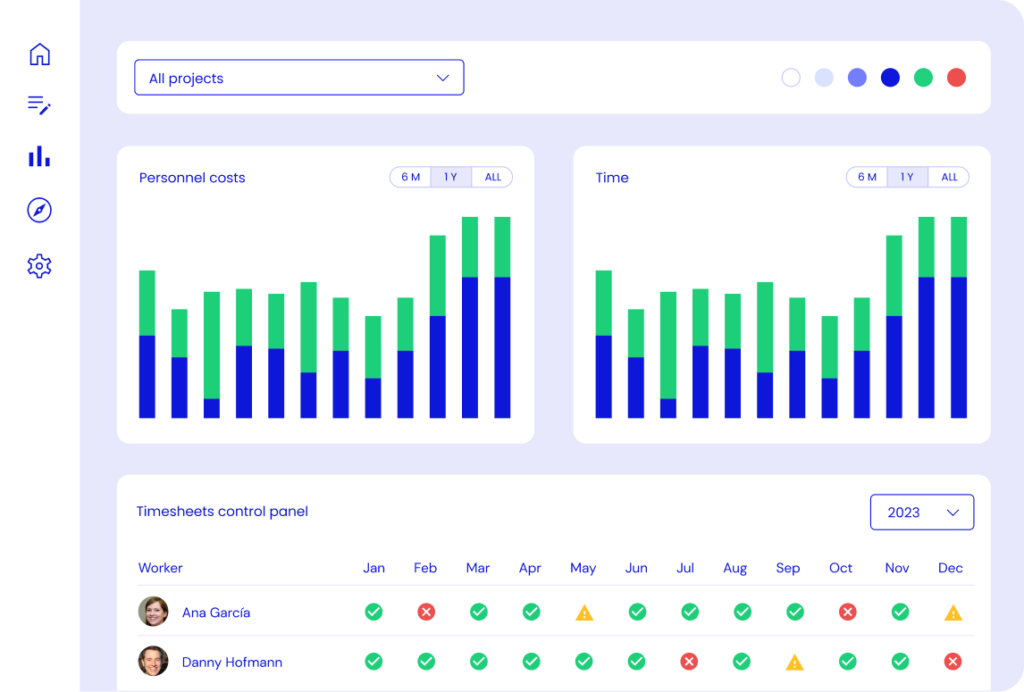Managing a Horizon Europe or EU-funded project? Good record-keeping is essential for smooth financial management, timely payments, and full compliance. Knowing what records to keep, how long to store them, and how to organise them efficiently can save hours of work and prevent costly mistakes.

Why Record-Keeping Matters in EU Projects
Ask any veteran project manager—the success of your EU project is as much about documentation as it is about innovation. Proper record-keeping keeps your project running smoothly and prevents last-minute chaos.
Maintaining organised records ensures:
- Timely payments – all costs can be clearly justified and submitted without delays.
- Long-term protection – if questions arise or audits and checks happen years after the project ends, you’ll have the documentation ready.
- Team efficiency – everyone can access the right information quickly, even as team members change.
In short: keeping good records and justifying your expenses means peace of mind, stronger compliance, and more time to focus on what really matters.
What Records Do You Really Need?
The essentials for EU projects usually include:
- Contracts & Grant Agreements (with all amendments)
- Timesheets for every project staff member
- Payroll records and proof of salary payments
- Invoices and receipts for all project-related costs
- Bank statements showing payment transfers
- Procurement documentation for subcontracting or equipment
- Meeting minutes & reports to evidence project activity
- Communication with the EU or coordinator (emails, letters)
- Deliverables & outputs (reports, publications, prototypes)
Pro tip: Don’t forget to document any budget changes, approval emails, and partner communications. If in doubt, save it!
How Long Should You Keep Records?
EU rules are clear:
You must retain all project documentation for at least five years after the final payment (sometimes longer, depending on your grant agreement). That means:
- Don’t delete or archive files right after project closure!
- Make sure files remain accessible—even if staff change or IT systems are updated.
Summary:
Keep all your project records for five years post-project, safely and securely.
Digital vs. Paper: Why Modern Teams Go Digital
Storing records in paper folders is risky and time-consuming. Digital record-keeping is the new gold standard for EU projects:
- Instant access: Find any document in seconds—no more frantic searching before audits.
- Secure backups: Protect files from loss, fire, or accidental deletion.
- Easy collaboration: Share records with team members, partners, or auditors in a click.
- Version control: Avoid confusion with automatic file histories.
- Automated reminders: Never miss a deadline for document submission.
No more last-minute panic—let our platform keep your records audit-ready 24/7.
Best Practices for Audit-Readiness
How can you be sure your team is always ready for an audit?
Here are tried-and-tested habits from successful project managers:
- Centralise everything: Keep all records in one secure digital system (like Kronis).
- Label clearly: Use consistent names and folders for quick retrieval.
- Update regularly: Don’t wait until the deadline—upload new documents as you get them.
- Assign roles: Make sure at least two people can access and update records at all times.
- Schedule checks: Set quarterly reviews to double-check compliance.
- Back up: Maintain cloud and offline backups for extra security.
The Value of Kronis: Focus on Progress, Not Paperwork
Kronis centralises and automates record-keeping, so your team can focus on progress, not paperwork. Our platform ensures all your EU project files are organised, secure, and always ready for an audit—saving you hours and giving you true peace of mind.
FAQ: Record-Keeping
How long do I really have to keep- EU project documents?
At least five years after the final payment, unless your grant agreement says otherwise.
Are digital copies enough, or do I need paper originals?
Digital copies are generally accepted, but check your grant agreement and national law. Always keep high-quality scans.
What happens if I lose a document?
Missing records can lead to cost rejections or even repayment of funds. Centralise storage and keep backups to minimise this risk.
What if staff leave the organisation?
Use centralised digital storage and always have a backup user (e.g., in Kronis) to maintain access.
Can Kronis help with record-keeping for audits?
Absolutely. Kronis centralises your documents, tracks approvals, and sends reminders, making it easier to keep your records organised and ready if audits or checks occur.
Your Free Record-Keeping Template
Record-keeping doesn’t have to be a burden. With Kronis, your EU project files are always safe, organised, and ready for any audit—so you can focus on what really matters: delivering impact and innovation.
Download our free Record-Keeping Template and start building peace of mind today.

Equipment & Direct Costs in Horizon Europe: How to complete the financial statement



